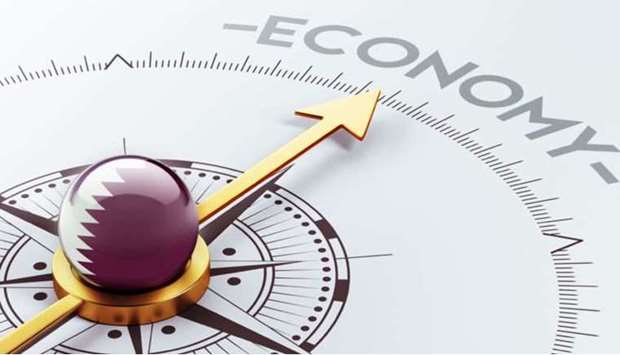Achieving ‘green growth’ appears to be an increasingly important priority for governments in the GCC; Oxford Economics said and noted the bloc has the financial means to accelerate its energy transition.
The transition to a cleaner economy seems “unavoidable” and this presents opportunities for countries and businesses to benefit from green growth.
Many of the enablers to green growth are focused on the degree to which countries are first movers and have the innovative and financial base to stimulate significant economic transition.
The need to invest and regenerate means there are unique opportunities for businesses to innovate and capitalise on the opportunities offered by the clean transition. The share of renewable energy can be indicative of whether country is an early adopter of clean energy.
It can also be a sign of a base of relevant expertise in green technologies that can be built upon. The GCC has been a slower adopter of renewable energy than Europe and Canada, and lags behind, the report said.
To reinvent and change economies for green growth requires significant innovation and technological progress. R&D expenditure and STEM graduates are indicative of innovation activity in an economy. Although these innovative resources can be spread over a broad area, it highlights the potential resources that can be turned to improving energy efficiency.
According to Oxford Economics, the GCC faces a climate-change quandary as it is one of the regions' most exposed to the economic impacts of climate change given its economy is heavily dependent on fossil fuels.
“Despite the difficulties posed to the region by the energy transition, ambitious diversification plans and financial resources from accumulated oil wealth offer the GCC opportunities to accelerate the move to green growth and this is something that governments in the region are increasingly embracing,” Oxford Economics noted.
Crucially for the region, the clean transition is expensive – the IEA estimates that global capital investment in energy needs to rise from 2.5% of GDP in recent years to 4.5% by 2030 and remain there in order achieve net zero by 2050, it said.
The public sector will shoulder a lot of the cost directly or indirectly and those countries with stronger public finances are better-placed to support the clean energy transition.
Oxford Economics noted the GCC has low levels of government debt and the ability to finance investment is also enhanced by sovereign wealth funds that could be used to support the transition. “The biggest enabler for the GCC is ambition and having the accumulate oil revenues to invest in the energy transition,” the report said.
The transition to a cleaner economy seems “unavoidable” and this presents opportunities for countries and businesses to benefit from green growth.
Many of the enablers to green growth are focused on the degree to which countries are first movers and have the innovative and financial base to stimulate significant economic transition.
The need to invest and regenerate means there are unique opportunities for businesses to innovate and capitalise on the opportunities offered by the clean transition. The share of renewable energy can be indicative of whether country is an early adopter of clean energy.
It can also be a sign of a base of relevant expertise in green technologies that can be built upon. The GCC has been a slower adopter of renewable energy than Europe and Canada, and lags behind, the report said.
To reinvent and change economies for green growth requires significant innovation and technological progress. R&D expenditure and STEM graduates are indicative of innovation activity in an economy. Although these innovative resources can be spread over a broad area, it highlights the potential resources that can be turned to improving energy efficiency.
According to Oxford Economics, the GCC faces a climate-change quandary as it is one of the regions' most exposed to the economic impacts of climate change given its economy is heavily dependent on fossil fuels.
“Despite the difficulties posed to the region by the energy transition, ambitious diversification plans and financial resources from accumulated oil wealth offer the GCC opportunities to accelerate the move to green growth and this is something that governments in the region are increasingly embracing,” Oxford Economics noted.
Crucially for the region, the clean transition is expensive – the IEA estimates that global capital investment in energy needs to rise from 2.5% of GDP in recent years to 4.5% by 2030 and remain there in order achieve net zero by 2050, it said.
The public sector will shoulder a lot of the cost directly or indirectly and those countries with stronger public finances are better-placed to support the clean energy transition.
Oxford Economics noted the GCC has low levels of government debt and the ability to finance investment is also enhanced by sovereign wealth funds that could be used to support the transition. “The biggest enabler for the GCC is ambition and having the accumulate oil revenues to invest in the energy transition,” the report said.


